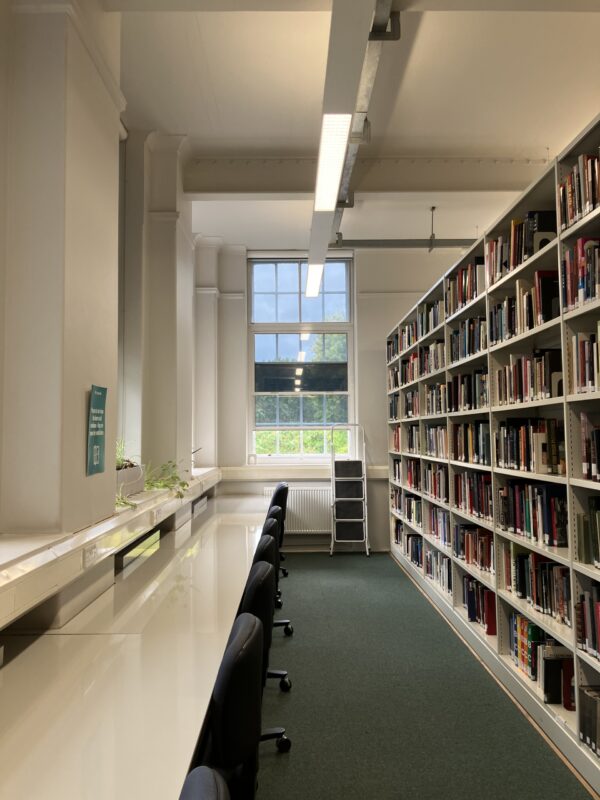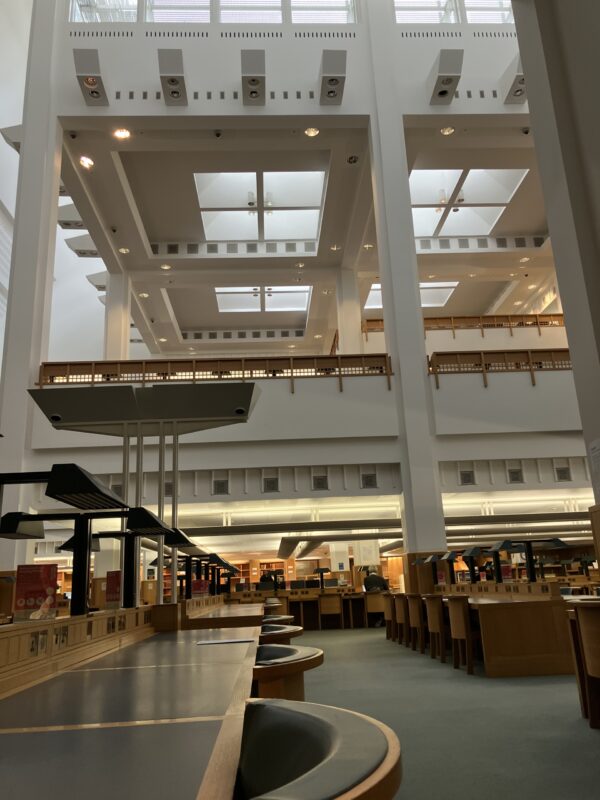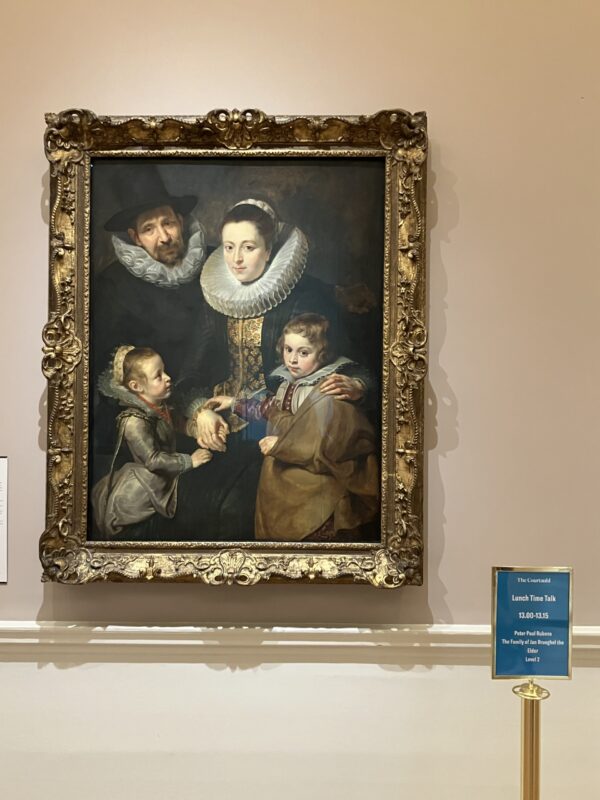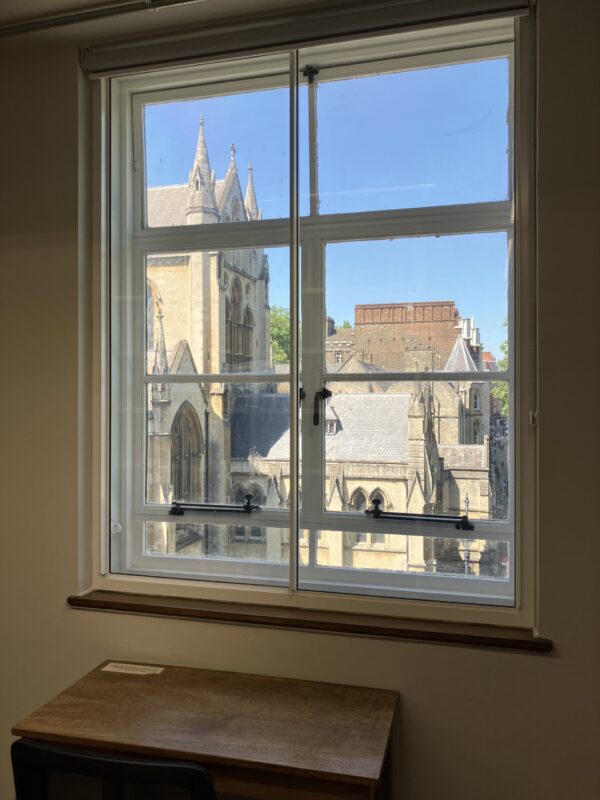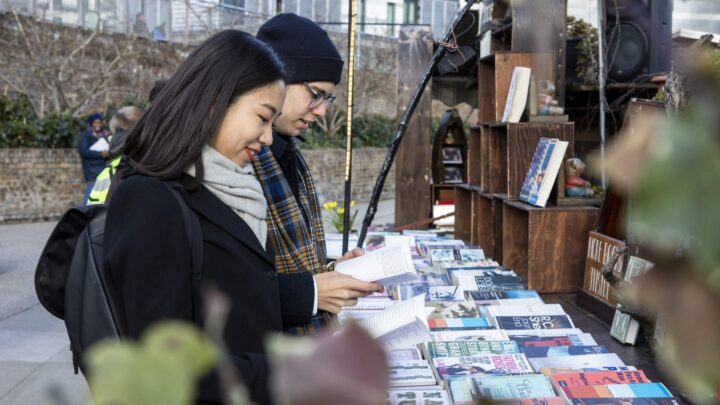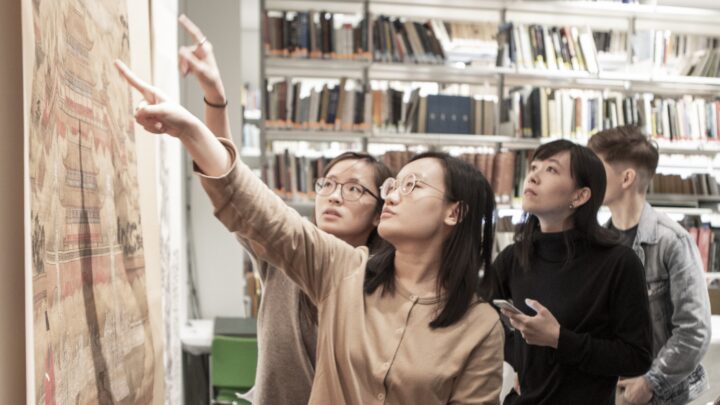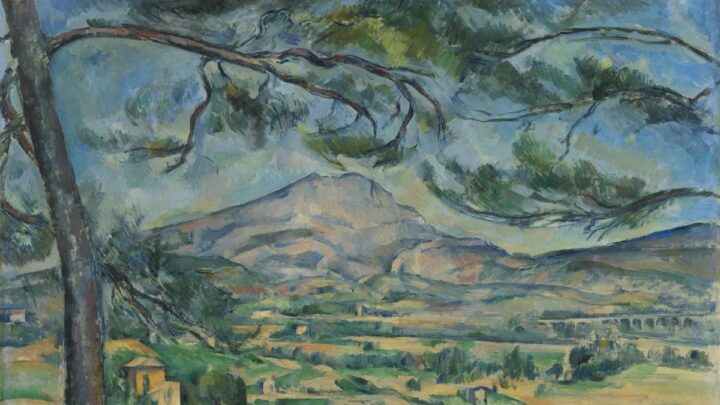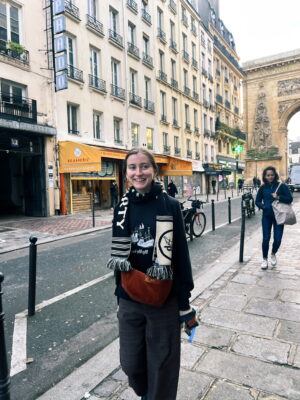
By Ellen Watters
Hello, I’m Ellen. I’m a History of Art MA student at the Courtauld, on the 2024-25 Special Option ‘The Surrealist Century: Mediums, Madness, Magic and the Manifesto of Surrealism (1924)’. With graduation around the corner, I thought I’d take some time to reflect on the past year, and I hope that this article will be useful to those considering doing an MA at the Courtauld.
For me, the main selling point of the Courtauld MA was the Special Option. I was drawn to ‘The Surrealist Century’ since studying Surrealism during my History of Art BA at the University of Cambridge had already sparked an interest in the subject. However, my coursemates came from various backgrounds so do not worry if you have never studied History of Art before – when you’re deciding on your preferred Special Option, think about what ignites your curiosity and what you would enjoy dedicating your time to.
In terms of my timetable, I had a two hour long Special Option class every Tuesday and on Thursdays my classes alternated between a second Special Option class and one of the so-called ‘Shared Interest’ classes – ‘Methodologies in Conversation’ or ‘Snapshots’ – which all MA students attend in a big lecture theatre. There are no assignments associated with these ‘Shared Interest’ classes but they’re a great opportunity to think outside of your Special Option and learn from lots of different lecturers. Outside of contact hours, it is up to you to do the required reading and work on your assignments: two 4,000-word essays, a virtual exhibition project, and a 10,000-word dissertation. Of course, you get plenty of support along the way, through academic skills sessions and tutorials with your supervisor. I thought that the virtual exhibition project was really fun and a nice break from the longer essays.
Temporarily, while the Senate House campus is under redevelopment, the Courtauld’s campus is located at Vernon Square in Kings Cross. Some would say that it is a shame not to be located right next to the Courtauld Gallery. However, I liked the Vernon Square campus: in addition to the Courtauld library, the British Library, Senate House Library, and the Warburg Institute are all within walking distance of Kings Cross, offering a variety of study spaces. I recommend registering for all of these libraries at the start of your degree, as well as signing up for a King’s College student card so you can access their libraries too. The National Art Library at the V&A Museum is also useful for art historians. I found that I was more productive when I went to a different library each day, for a change of scenery, but everyone works differently.
Probably the biggest lesson I learnt this past year was to value my own opinion: writing an MA-level essay does not mean regurgitating theory you think is hard and therefore impressive; the reader is more interested in what you have to say – what you can contribute to the discourse. Of course, it is good to show a comprehensive understanding of the research that’s already out there, but even better to discuss your own position on it. Before I started the MA, the 4,000-word essay seemed to me a big jump from writing 2,000-word essays during my BA, but I discovered that it’s a good length – it gives you more room for context and detailed visual analysis.
My fondest memory of the MA has got to be our course trip to Paris. We went in early December to see the big Surrealism exhibition at the Pompidou Centre and visited a lot of other galleries while we were there: the Musée d’Orsay, the Orangerie, the Museum of Modern Art, and the Picasso Museum. I added on a day of dissertation research at the Bibliothèque nationale. I shared an Airbnb with four coursemates who also wanted to stay a little longer than the official trip itinerary. We each had a £400 study trip grant from the Courtauld. Other enjoyable experiences this year included a daytrip to the Hepworth Wakefield for a Surrealism conference and taking part in the Student Talks programme at the Courtauld – writing and delivering talks on one work of art in the Courtauld gallery. It’s wonderful to be at a university which focuses on art history, and advantageous: it means you have access to unique opportunities such as the Student Talks programme and, with regular Courtauld Research Forum events, Careers events, and events organised by student societies, there are many spaces for learning and meeting people with shared interests.






